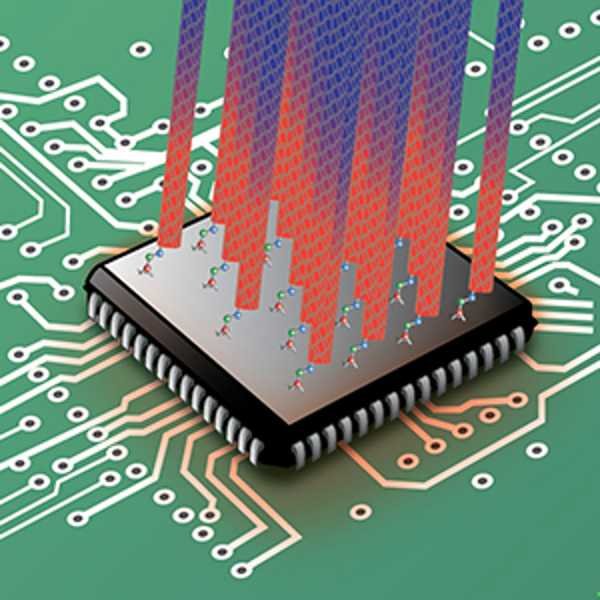A group of researchers based in Lawrence Berkeley's National Laboratory US Department of Energy announces the development of a new techniques that will allow in the future the easy chilling of microprocessors with use of carbon nanotubes.
The technique they have developed is one easy and friendly process, meaning it can easily be scaled up for mass production. Carbon nanotubes were chosen herein research, because they have remarkable physical and chemical properties. These tubes can be easily made by wrapping leaves graphene.
The modern ones chip microprocessors can reach extreme performance (overclocking), but at the same time they generate a lot of heat. The billions of transistors crammed into a few square centimeters can easily exceed temperatures above the boiling point of water when not adequately cooled.
At this point, cooling is usually done with a combination of heat-conducting adhesive, a heat sink and a fan, or in more hitech situations with water-circulating hydraulic cooling circuits.
Using carbon nanotubes, the efficiency of future cooling systems will be much greater than that available with today's technology.
The team, led by physicist Frank Ogletree, found a way to use organic molecules as binders to attach carbon nanotubes to the metal surfaces of microprocessors with highly elastic covalent bonds.
Heat flow from the microprocessors they tested improved by 600% (!!!) with the nanotubes, the team reports. The attachment of the pipes to the metal surfaces is done by means of gas vapors or chemical liquids at low temperature, which means that chip makers can easily fit them into their production line.
Details of the new technique appear in the latest issue of Nature Communications.






